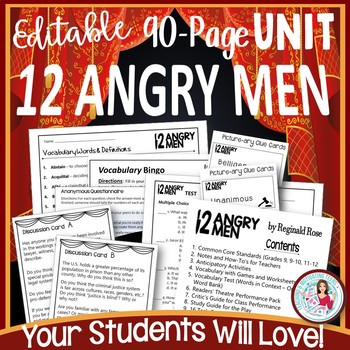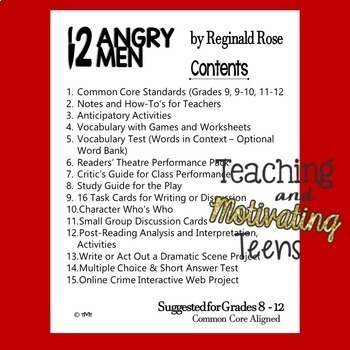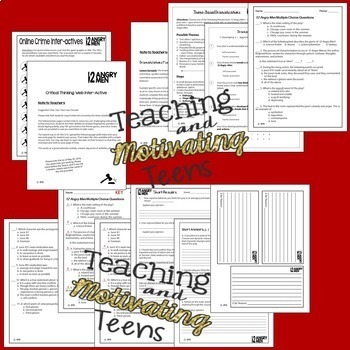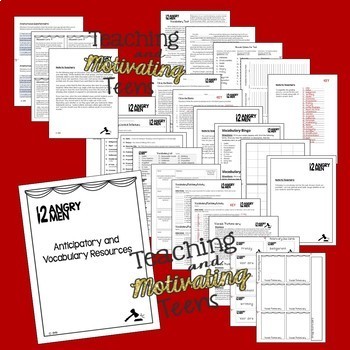Twelve Angry Men | 12 Angry Men Drama Unit
- Zip
What educators are saying
Description
12 Angry Men by Reginald Rose for middle school and high school language arts. This lessons will engage your students, invoke critical thinking, and promote high-level discussions. Lessons, assessments, performance pack, and more! Motivate your students - even the reluctant readers by performing, not just reading the play. Includes activities, games, writing prompts, discussion topics, study guide, self-assessments, etc. A great addition to your study of American literature and drama.
Comments from teachers who have used this resource in their class:
1) "I taught 12 Angry Men to my middle schoolers for the first time this year. There was so much in this resource-- more than I could use! I can't wait to teach it again and really explore all this product has to offer!"
2) "What a thorough and dramatic approach to the play! I taught this play years ago with freshmen, and I am totally excited to make it more of a "production" with my American Literature juniors."
3) "Great resources! My students really enjoyed the unit."
4) "Can't wait to use this resource! It is one of the most comprehensive units I have seen. Everything comes with this. :)"
The contents of this product do NOT include the script, but include the following teaching resources:
Common Core Standards (Grades 8, 9-10, 11-12)
Notes and How-To’s for Teachers
Anticipatory Activities
Vocabulary with Games and Worksheets
Vocabulary Test (Words in Context – Optional Word Bank)
Readers’ Theatre Performance Pack
Critic’s Guide for Class Performance
Study Guide for the Play
16 Task Cards for Writing or Discussion
Character Who’s Who
Small Group Discussion Cards
Post-Reading Analysis and Interpretation, Activities
Write or Act Out a Dramatic Scene Project
Multiple Choice & Short Answer Test
Online Crime Interactive Web Project
Every student has a theater job and together they'll produce an in-class performance of the play - or a scene from the play. Since all students will be participating in one way or another, a great idea is to tape it for sharing or publication.
“During these lessons, I see lots of self-directed behavior and kids themselves choosing to go that extra mile for the greater good. Many are far more intensely engaged while planning and performing this than if I asked them to intensely engage in a daily reading assignment. Even small classes don’t care that they don’t have much of an audience. And talk about being excited to come to class! You will capture and reel in reluctant learners.”
Check out -
Summary, Main Idea, Paraphrasing
Differentiated & Fun Lesson in Summarization Skills
Thanks for shopping at my store! ♥





